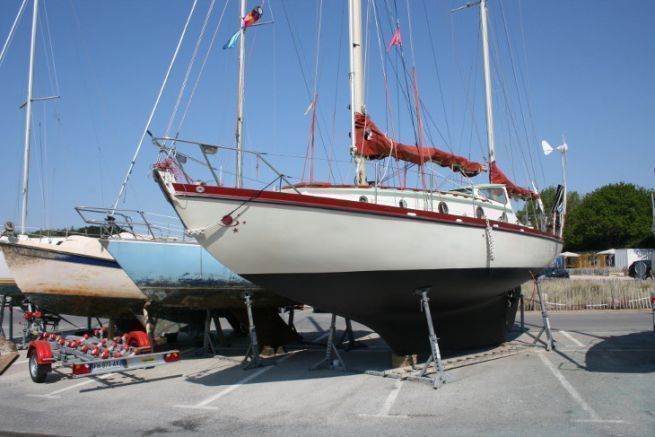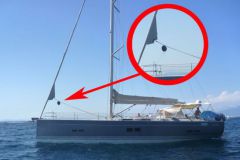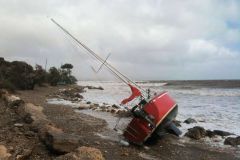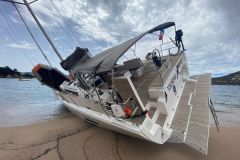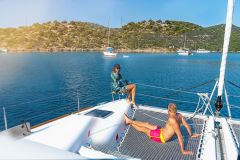We insure our boats for sailing and to make sure they provide us with the pleasure and recreation we expect during the all too short boating season. When the winter season arrives, what level of insurance and protection is really needed and offered by the companies?
APRIL Marine, the French leader in yachting insurance, gives you some necessary information to ensure that your boat is fully insured during the winter.
The most serious incidents occur outside of navigation times
Where one might think that a boat that does not sail is not at risk, the evidence is clear that the losses suffered by our boats are much more serious - and therefore costly - when not sailing. One out of every two claims occurs when not sailing. This is what APRIL Marine's claims adjusters explain: " The median cost of a claim in navigation is 4,600 euros. When not sailing, the cost is 7,100 euros. This is why we insist on the importance of not suspending your insurance in winter just because you will not be using your boat ."
The reason is elementary. When we are on the water, the type of damage is generally under control. Most of the time, it is a question of rough contact with a pontoon, of heeling or of a damaged motor base.
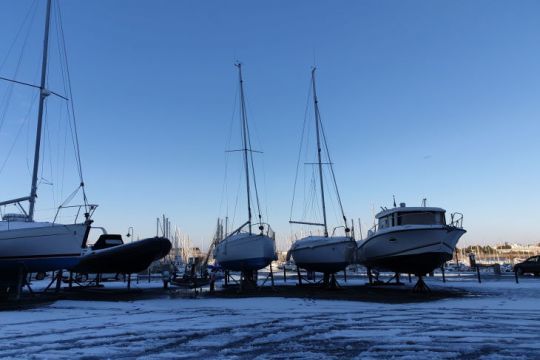
on the other hand, when the boat remains in port, the losses are much more diversified: " Left unattended, boats suffer the ravages of harsh winter weather. It is necessary to protect against storms and gales, fires, but also to winterize the engine to avoid damage due to freezing "explains the insurer.
The risks of malice also arise: " At the pontoon, a boat will be more exposed to exactions. This is where the risk of theft - total or partial - or vandalism is the highest. "
With a professional, pay attention to the service requested
Some boaters leave their boat with a professional for the winter. They think that the insurance of this professional is enough to guarantee them.
This is usually a misinterpretation of the rules and principles of insurance, as Vanessa Poirier, claims manager at APRIL Marine, explains: "There are several scenarios. The most frequent are the rental of dry sites. In this case, the boat is not covered by the insurance of the professional, who only provides square meters of parking space. If, on the other hand, the boat stays with the service provider for work to be carried out, it is likely that it will be covered by the service provider's insurance for the duration of the work. Be careful, however, as the professional's general terms and conditions of sale are necessarily restrictive as to the guarantees and their scope and, in almost all cases, you will have to call on your insurance for recourse against this professional, who will have to justify a fault committed by the professional in order to hold him/her responsible. If you are not insured for your own boat, the recourse will have to be carried out yourself."
To remain without insurance to save a few euros, without being an expert in the field, is certainly not an effective strategy!
No matter where the garage is located
Whether it is wintered on the water, stored in a barn or on a dock, with APRIL Marine, your boat remains insured without the need for any particular declaration.
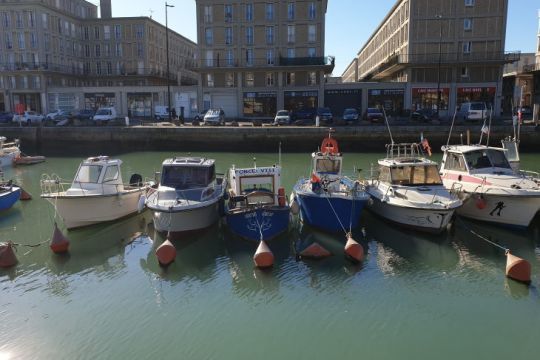
This is at least the case for the insurance policies taken out with APRIL Marine: "All
the comprehensive boat insurance policies we offer include coverage of the boat when it is
stored on land, during handling, during land transport and of course afloat. This does not prevent you from being careful, when you are not sailing for several months, remove everything that could be stolen, secure your boat by regularly checking its mooring and that there is no water ingress when it is afloat, especially during storms, or by securing its mooring on land so that it does not slip off its cradle explains the insurer.
Think about the trailer
As an accessory for moving the boat on land, the trailer must also be declared and insured. Although it is not a boat insurance, it is a guarantee that APRIL Marine offers among its contracts. "Make sure you are driving with the proper permits to tow your road unit" insists the company's manager. "It is necessary to keep in mind that, in certain cases, it will be necessary to have either the B96 training (if the tractor + towed unit weighs between 3,500 and 4,250 kilograms), or the EB permit (if the unit exceeds 4,250 kilograms). It is the GVW (Gross Vehicle Weight Rating) noted on the car and trailer registration cards that are valid. "
Reviewing your contract
The last aspect is the life of the contract. As time goes by, renovations or replacement of the motorization, the value of a boat will evolve.
" Repowering or refitting the boat and, to a lesser extent, adding equipment will effectively change the value of the boat. It is important to get in touch with your insurer in order to have your guarantees evolve and thus be properly insured in case of a claim." explains APRIL Marine.
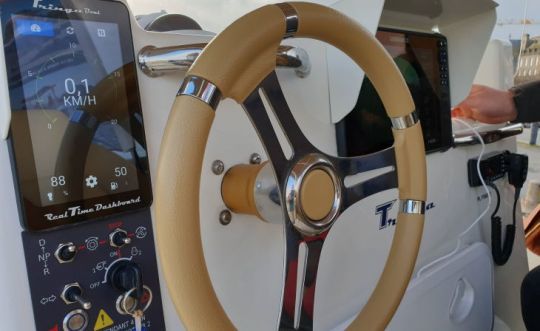
Indeed, if we consider the small improvements as minor and of little value individually, the addition of a VHF, then an AIS and finally a radar will have quickly increased the value of the boat by 2 000 or 3 000 euros, which the insurer will not be aware of and which, in case of damage, will not be taken into account in the compensation paid by the latter.
